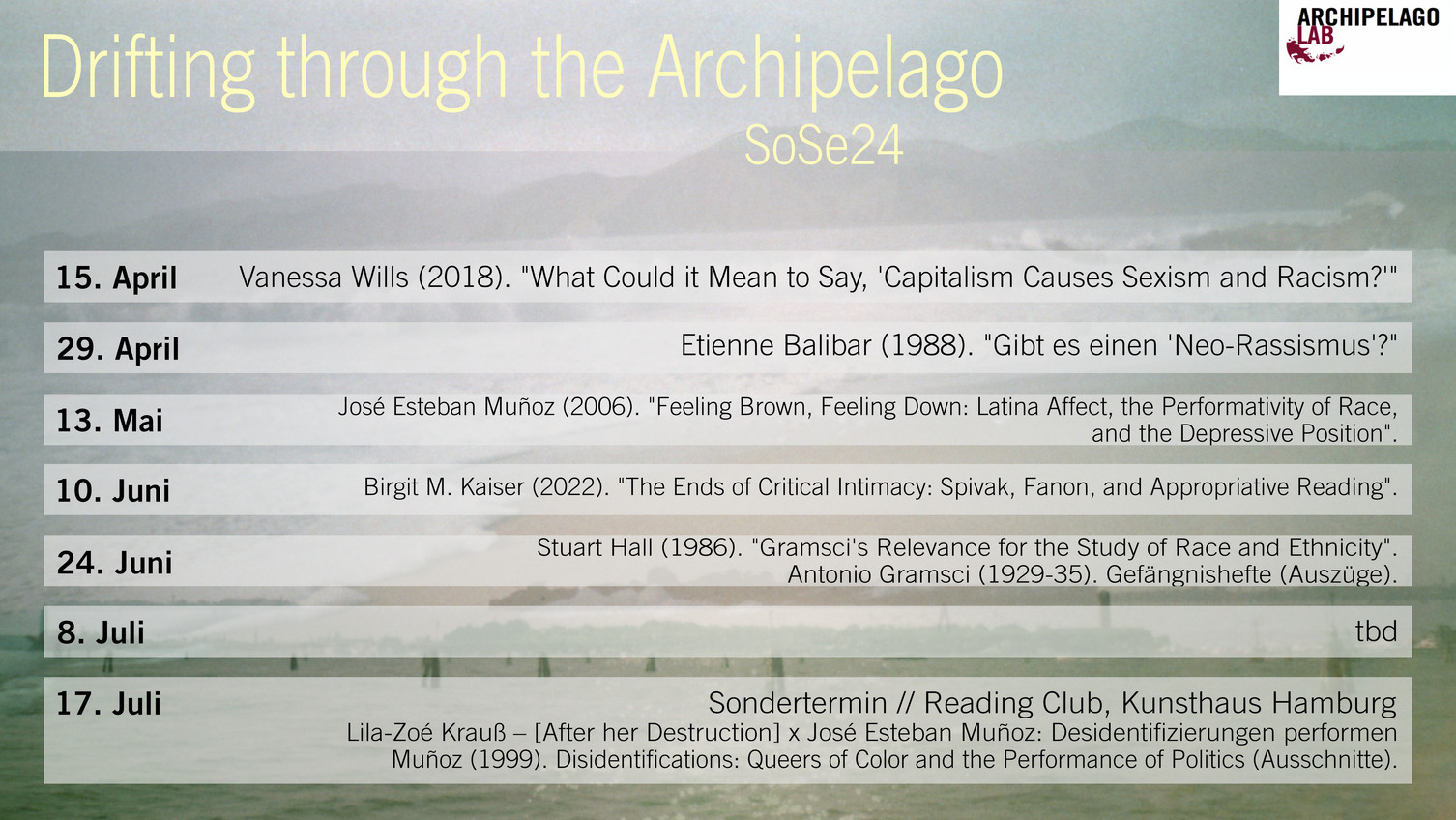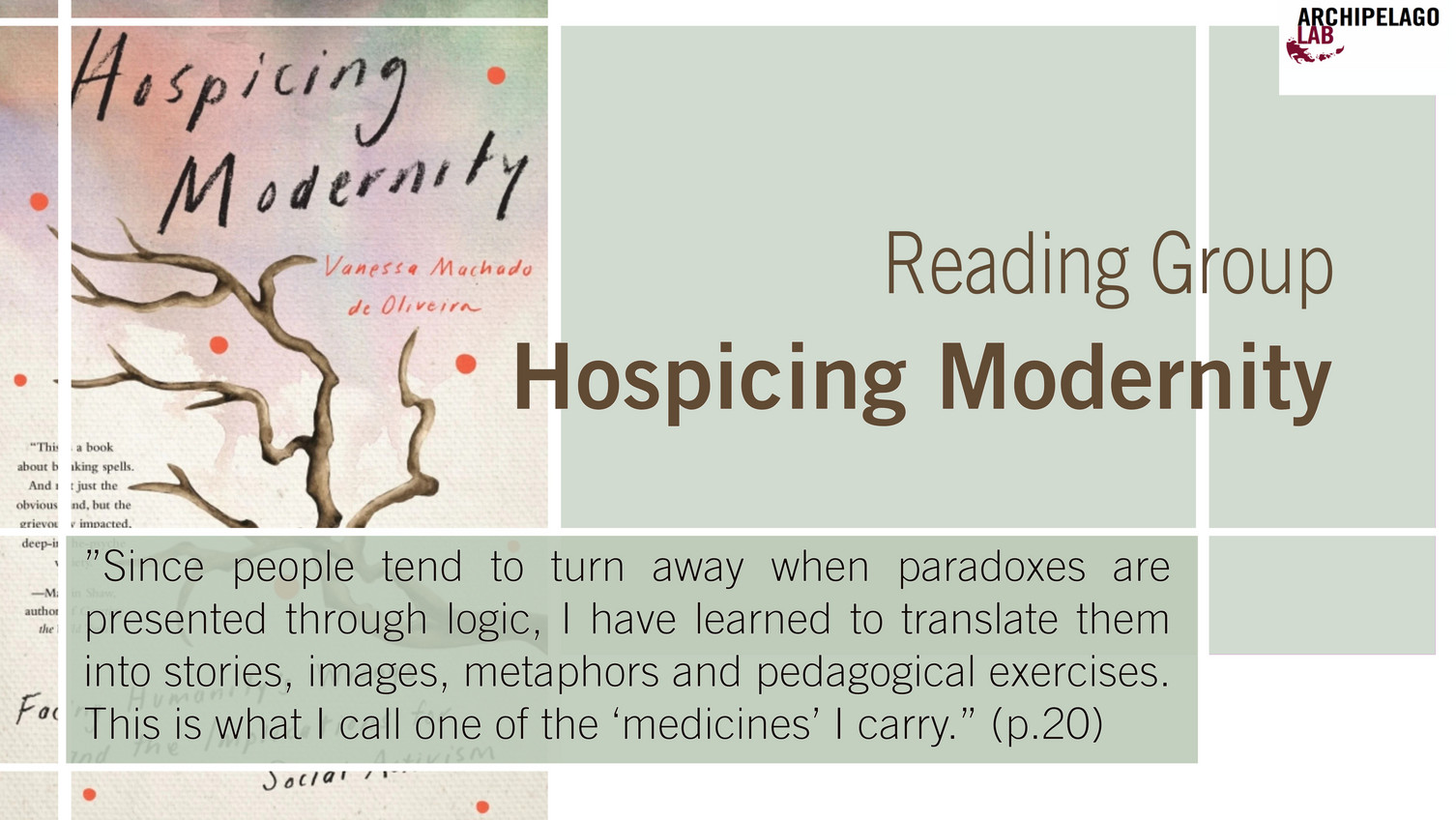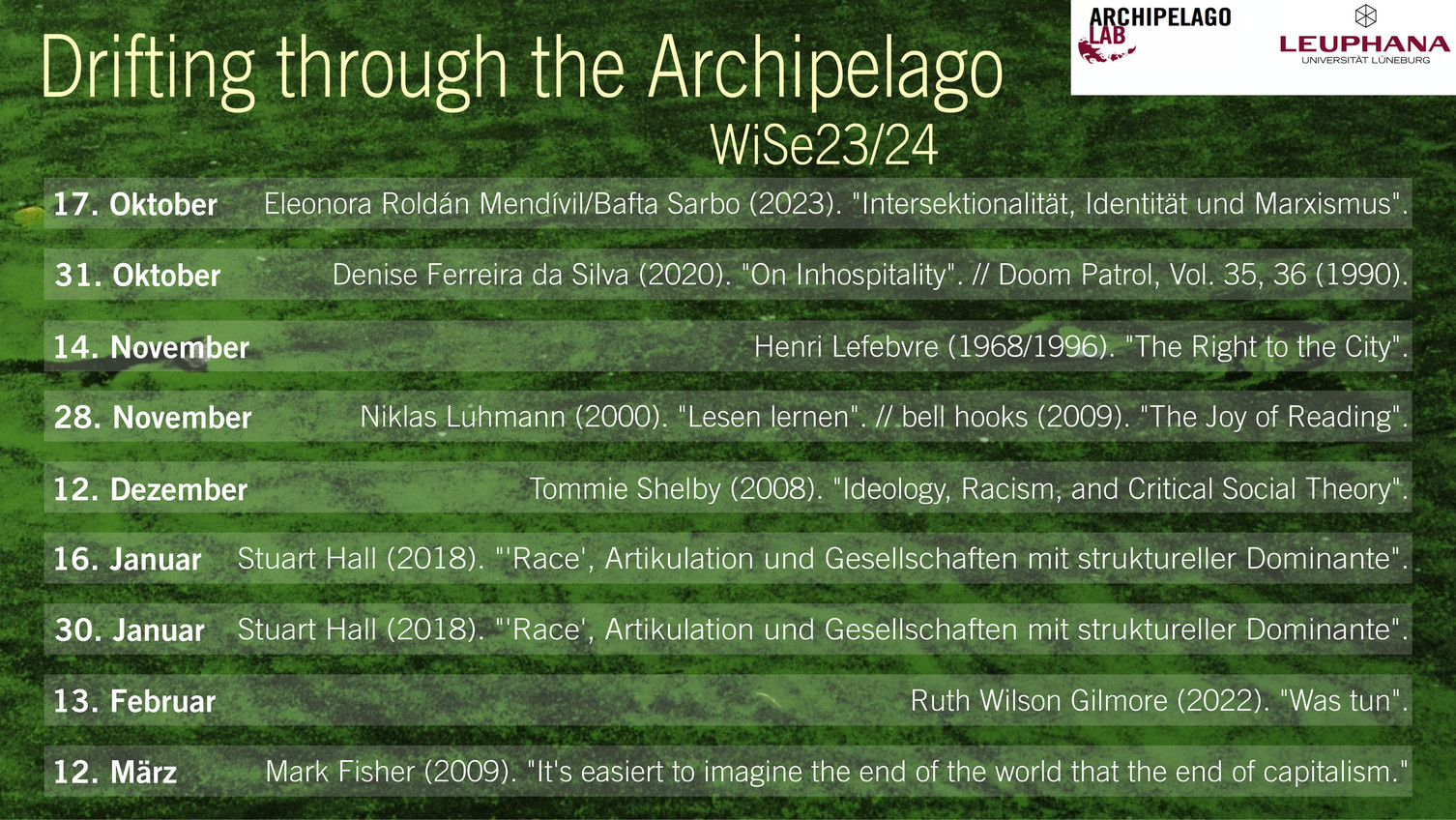Schreibgruppen und Lesekreise
 ©Marie Lynn Jessen/Kyle Wendt
©Marie Lynn Jessen/Kyle Wendt
seit WiSe 23/24 - Lüneburg Creative Writing Club
Donnerstag
17.00 Uhr
ArchipelagoLab
Die Creative Writing Group wird angeleitet von Kyle Wendt. Der QR Code führt in die Gruppe.
 ©Marie Lynn Jessen / ArchipelagoLab
©Marie Lynn Jessen / ArchipelagoLab
SoSe24 - Drifting through the Archipelago
jeden zweiten Montag
20.00 Uhr
online
In diesem Lesekreis beschäftigen wir uns mit Texten und Quellen, die die Menschen die im und um das Lab aktiv sind, gerade bewegen, die wir gemeinsam erkunden wollen und die so Teil des Archipels werden.
Material:
Für Texte und Zugangsdaten schicke gerne eine kurze E-Mail an archipelagolab@leuphana.de.
*Dieses Semester hat der Lesekreis einen Sondertermin im Kunsthaus Hamburg. Im Reading Club besuchen wir die Ausstellung Lila-Zoé Krauß – [After her Destruction] und lesen anschließend in einem öffentlichen Zusammenkommen Ausschnitte aus José Esteban Muñoz' Disidentifications: Queers of Color and the Performance of Politics (1999).
 ©Marie Lynn Jessen / ArchipelagoLab
©Marie Lynn Jessen / ArchipelagoLab
SoSe24 - “Hospicing Modernity - Facing Humanity's Wrongs and the Implications for Social Activism”
Dienstags
14.00 - 16.00 Uhr
ArchipelagoLab (C5.225)
Ansprechpartnerin: Smilla Grubert
Der Austausch findet auf Deutsch und Englisch statt.
”Since people tend to turn away when paradoxes are presented through logic, I have learned to translate them into stories, images, metaphors and pedagogical exercises. This is what I call one of the ‘medicines’ I carry.” (p.20)
With these words, Vanessa Oliveira de Machado, who is a specialist in articulating paradoxes at the interface of colonial encounters, describes the nature of her work. In the trans-disciplinary ‘GESTURING TOWARDS DECOLONIAL FUTURES’ collective, she has conducted research with indigenous knowledge keepers, artists, researchers, students and educators and recorded her findings and results in an unsettling gift: her book “Hospicing Modernity - Facing Humanity's Wrongs and the Implications for Social Activism”.
It is precisely this book that the reading circle is dedicated to, which can also transform into a space for collective research, grieving and practice. For right at the beginning, the author advocates that, in view of inhabiting a world that is characterised by multiple crises, it is important to develop the ability of "holding spaces where heavy things can be held and difficult movements can happen without relationships falling apart".
About the book:
Based on the observation that the idealisation of Western forms of good life (notions of progress, development) no longer offer the security and well-being promised that modernity conditions us to want, the author concludes that we are in the midst of a dying process of modernity. The closely interwoven symptoms manifesting the devastating state of planet Earth are increasing in intensity at an alarming rate. We live, grow up and educate ourselves in an accelerated world of unpredictability in which not only technological developments change in extraordinary dimensions, change itself is constantly changing!
So we have to ask ourselves with which theory of change we encounter the systemic crisis?
Usual theories of change assume that if there is a problem with the system out there, we the ‘virtuous, moral or enlightened’, need to solve it by patching it up or by offering a better alternative for replacement. Vanessa Oliveira de Machado's considerations are based on a different theory of change which suggests that we must examine how violence and unsustainability are conditions necessary for the system (that is ‘not working’) to exist, how we are part of this system and complicit in the harm.
Alongside a sophisticated de-colonial analysis of modernity, ‘Hospicing Modernity’ explores our entanglement with the shit that we need to compost together (Haraway), how to face escape mechanisms for problematic realities, denial and our collective oversaturation of unprocessed emotions. Furthermore, it asks to what extent the university as a colonial project enacts ways of being (ontology), ways of knowing (epistemology) and ways of doing (methodology) that are opposed to the well-being of all living beings and how we can also support the dying and metamorphosis process of this institution with integrity as well.
This reading group invites you to sit down together with this book and to collectively learn how to sit with the mess!
 ©Marie Lynn Jessen
©Marie Lynn Jessen
WiSe 23/24 - Drifting through the Archipelago
Der erste Zyklus von Drifting through the Archipelago.
